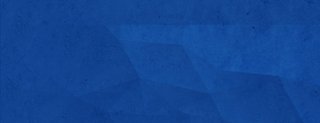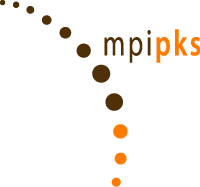
Teaching
Many-Body Quantum Dynamics (WiSe 2024/25)
This lecture course offers an introduction to quantum many-body dynamics, emphasizing recent exciting and fundamental developments in this rapidly developing field. Quantum many-body dynamics combines aspects from condensed matter physics and quantum optics, based on a rich interplay between theoretical developments and experimental advances in quantum computing and quantum simulators. This course covers the foundations of this field, introducing aspects of quantum chaos and quantum quench dynamics, before moving on to topics of recent interest including many-body localization, prethermalization, periodically driven (Floquet) systems and Floquet engineering, quantum geometry, discrete time crystals, and quantum circuits as minimal models for many-body dynamics.
Prerequisites: Quantum Mechanics, Statistical Mechanics, basic familiarity with Python
Preliminary reading materials:
- J. J. Sakurai, Modern Quantum Mechanics, Chapters 1-4 and Chapter 7;
- basic notions of statistical mechanics and thermodynamics;
- Chris Laumann's Scientific Computing in Python lectures given at ICTP: lecture 1, lecture 2, lecture 3, notebooks.
ECTS Credits: 5 ECTS
Coursework: The course offers regular lectures (see table below for syllabus) and regular tutorial sessions. Regular attendance (at least 75% of the lectures) is expected.
Final Exam: Oral exam starting focusing on a set of topics covered in class. Only for students taking the course for credit.
Time and Place:
Tuesday and Thursday: 13:00 - 14:30
Venue: Seminar Room 4 (SR4), Max Planck Institute for the Physics of Complex Systems, Noethnitzer Str 38, Dresden 01187
Public holidays: Oct 31, Dec 26, Dec 28, Dec 31, Jan 2
Lecturers:
Marin Bukov, PhD
Pieter Claeys, PhD
Dr. Johannes Mitscherling
Prof. Dr. Roderich Moessner
Syllabus:
Date | Lecture topic | Material |
| Oct 17 | Introduction | Notes "Course overview" |
| Oct 22 | Local relaxation of many-body quantum systems | |
| Oct 24 | Aspects of Random Matrix Theory and Eigenstate Thermalization | |
| Oct 29 | Tutorial and Fluctuation-Dissipation Relations | |
| Oct 31 | Public Holiday | |
| Nov 5 | Quench Dynamics in Free-Fermionic Models | |
| Nov 7 | The Transverse-Field Ising Model | |
| Nov 12 | Adiabatic theorem | Problem set 2 (due Nov 19) adiabatic theorem, Aharonov-Bohm effect |
| Nov 14 | Adiabatic gauge potentials and counterdiabatic driving | gauge potentials |
| Nov 19 | Tutorial: AGPs & CD driving | solution to PS2, notebook |
| Nov 21 | Variational counterdiabatic driving | variational_CD_driving |
| Nov 26 | Periodically driven systems: Floquet theorem | Floquet systems Kapitza pendulum video Paul trap (rotating saddle) video |
| Nov 28 | Inverse frequency expansions | Problem set 3 (due Dec 5) Floquet_theory |
| Dec 3 | Floquet engineering | Floquet engineering |
| Dec 5 | Geometric Floquet theory | Geometric Floquet Theory |
| Dec 10 | Introduction to Quantum Geometry: Bloch states, Projectors, Bloch sphere | Lecture Notes (1-5) |
| Dec 12 | Introduction to Quantum Geometry: Berry phase, Quantum metric and its properties | Lecture Notes (2-5) |
| Dec 17 | Introduction to Quantum Geometry: Wannier functions, Polarization, Berry curvature and topology | Lecture Notes (3-5) |
| Dec 19 | Introduction to Quantum Geometry: Coupling of tight-binding models to an electric field, Two-state quantum geometry | Lecture Notes (4-5) |
| Jan 7 | Introduction to Quantum Geometry: Linear conductivity tensor, Intrinsic anomalous Hall effect, Optical conductivity and metric sum rule | Lecture Notes (5-5) |
| Jan 9 | Tutorial: Quantum Geometry | Solutions |
| Jan 14 | Diffusion and Anderson Localization | Lecture Notes (Anderson Localization) |
| Jan 21 | Eigenstate order | Lecture Notes (Symmetry protected topology) |
| Jan 23 | Many-Body Localization, Time Crystals | Lecture Notes (Floquet MBL, Time Crystals) |
| Jan 28 | Unitary Circuit Dynamics | Notes “Unitary Circuit Dynamics” |
| Jan 30 | Unitary Circuit Dynamics | |
| Feb 4 | Unitary Circuit Dynamics | |
| Feb 6 |
Many-Body Quantum Dynamics (WiSe 2023/24)
This lecture course offers an introduction to quantum many-body dynamics, emphasizing recent exciting and fundamental developments in this rapidly developing field, and includes a 'hands-on' research component. Quantum many-body dynamics combines aspects from condensed matter physics and quantum optics, based on a rich interplay between theoretical developments and experimental advances in quantum computing and quantum simulators. This course covers the foundations of this field, introducing aspects of quantum chaos and quantum quench dynamics, before moving on to topics of recent interest including many-body localization, prethermalization, periodically driven (Floquet) systems and Floquet engineering, discrete time crystals, and quantum circuits as minimal models for many-body dynamics.
Master students will have the opportunity to gain first-hand research experience by doing a small project and presenting their results. These projects are supervised by the lecturers and will serve as an introduction to recent developments, consisting of a reproduction part and original research. The final month of lectures will consist of presentations of these student projects, as well as lectures by guest lecturers (depending on the number of student presentations).
Prerequisites: Quantum Mechanics, Statistical Mechanics, basic familiarity with Python
Preliminary reading materials:
- J. J. Sakurai, Modern Quantum Mechanics, Chapters 1-4 and Chapter 7;
- basic notions of statistical mechanics and thermodynamics;
- Chris Laumann's Scientific Computing in Python lectures given at ICTP: lecture 1, lecture 2, lecture 3, notebooks.
ECTS Credits: 5 ECTS
Coursework: The course offers regular lectures (see table below for syllabus). Since this is an advanced course, there will be no weekly problem sets and no discussion/tutorial sessions. Besides attending lectures (at least 75% of lectures), students will choose a small research project to work out during the semester, and present their results in class in January. Example project topics are listed below, but students are free to choose their own topic, provided this topic is approved by one of the instructors. These projects are restricted to master students only, PhD students following the course are only expected to attend the lectures.
Final Exam: Oral exam starting with the student's research project, and going into related topics covered in class. Only for students taking the course for credit.
Time and Place:
Tue/Thu: 13:00 - 14:30
Venue: Seminar Room 1-3 (SR1-3), Max Planck Institute for the Physics of Complex Systems, Noethnitzer Str 38, Dresden 01187
Public holidays: Oct 31, Dec 21, Dec 26, Dec 28, Jan 2
Deadline to choose project: Nov 16
Lecturers:
Marin Bukov, PhD
Pieter Claeys, PhD
Prof. Dr. Roderich Moessner
Possible student projects:
- Driving the transverse-field Ising model
- Quantum many-body scars using QuSpin
- Prethermalization in random multipolar driven systems
- Operator spreading in classical and quantum dynamics
- Eigenstate thermalization in Floquet dynamics
- Discrete time crystals on quantum computers using qiskit
- Counterdiabatic control in classical and quantum two-spin systems
- Classical fractional discrete time crystals
Syllabus:
Date | Lecture topic | Material |
| Oct 10 | Logistics & Introduction | Lecture notes |
| Oct 12 | Introduction to quantum spin systems using QuSpin | 1. Basics of quspin notebook 2. Installation instructions for quspin 3. Additional material: tutorial 1 (advanced usage: tutorial 2, examples) |
| Oct 17 | Random matrix theory and eigenstate thermalization | |
| Oct 19 | Random matrix theory and eigenstate thermalization | |
| Oct 24 | Quench dynamics in the Transverse Field Ising Model | |
| Oct 26 | Quench dynamics in the Transverse Field Ising Model | |
| Oct 31 | Public Holiday | |
| Nov 2 | Periodically-driven (Floquet) Systems | Lecture notes 1/3 |
| Nov 7 | Inverse frequency expansions | Lecture notes 2/3 |
| Nov 9 | Floquet engineering | Lecture notes 3/3 |
| Nov 14 | Anderson Localization | Lecture Notes |
| Nov 16 | Many-Body Localization | |
| Nov 21 | Adiabatic theorem. Landau-Zener problem. Aharonov-Bohm effect | Lecture notes 1/3 |
| Nov 23 | Gauge potential. Counter-diabatic driving | Lecture notes 2/3 |
| Nov 28 | Symmetry protected topology | Lecture Notes |
| Nov 30 | Discrete Time Crystals | Lecture Notes |
| Dec 5 | Variational counter-diabatic driving | Lecture notes 3/3 |
| Dec 7 | Introduction to Unitary Circuit Dynamics | Lecture Notes |
| Dec 11 | Introduction to Unitary Circuit Dynamics | |
| Dec 13 | Introduction to Unitary Circuit Dynamics | Lecture Notes (Sections I-II) |
| Jan 4 | Nonadiabatic Response and Quantum Geometry | Lecture Notes 1/2 |
| Jan 9 | Nonadiabatic Response and Quantum Geometry | Lecture Notes 2/2 |
| Jan 11 | Magic and Mana: guest lecture (Christopher Hooley) | Lecture Notes 1/2 |
| Jan 16 | Magic and Mana: guest lecture (Christopher Hooley) | Lecture Notes 2/2 Mathematica notebook: nb, pdf |
| Jan 18 | Guest lecture (Jan Carl Budich) | |
| Jan 23 | Prethermalization | |
| Jan 25 | Student presentations | Lukas Koenig (TU Dresden) -- Prethermalization in random multipolar driven systems Zhaohui Zhi (TU Dresden) -- Quantum many body scars |
| Jan 30 | Student presentations | Hristo Tonchev (Sofia University) -- Discrete time crystals on quantum computers using qiskit |
| Feb 1 | Discussion & Outlook |
